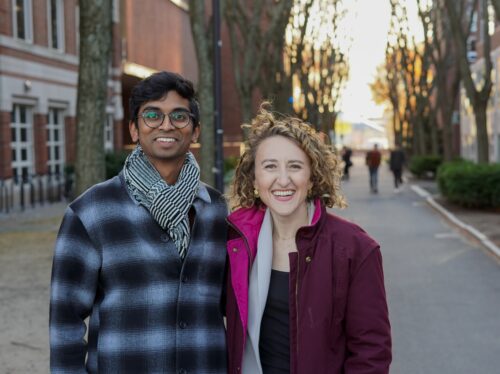Cambridge, MA—In 2020, the outbreak of COVID-19 and rising wave of racial justice demonstrations moved many organizations, including those in healthcare, to commit to antiracist change. These public commitments raised important questions about how organizations lead, plan, measure and sustain racial equity interventions in the healthcare sector for long-term transformation.
Today, the Institutional Antiracism and Accountability (IARA) Project at Harvard Kennedy School’s Ash Center for Democratic Governance and Innovation released a new report that provides a comprehensive overview of racial equity in practice and details the critical mechanisms for evaluating antiracism interventions in healthcare institutions.
The IARA Project, led by Khalil Gibran Muhammad, Professor of History, Race, and Public Policy at the Kennedy School, aims to move organizations from words to action to accountability by evaluating and disseminating the best evidence for achieving racial equity in the structures, policies, and practices of institutions. With support from the Robert Wood Johnson Foundation, the IARA project team, led by Muhammad and Research Fellow Angel Rodriguez undertook a year-long examination of antiracist interventions in healthcare that had started before 2020 and coupled these findings with a comprehensive review of health equity research literature. The project included over thirty interviews with healthcare practitioners and leaders across three distinct healthcare settings: a community health clinic, a hospital system, and a public health department.
“Building on existing healthcare disparities research, the IARA Project focused explicitly on effective racial equity solutions, by identifying and evaluating what works in a variety of healthcare settings,” said Muhammad. “We hope our findings inspire leaders to commit to transforming their organizations into models of equitable healthcare delivery.”
The report details best practices for organizational interventions to address systemic racism, going beyond just measuring health disparities of people and populations. Cross-cutting thematic findings from the case studies indicate that effective antiracism interventions require:
- Buy-in and sustained engagement from leadership
- Use of explicit language to define systemic racism
- Clearly defined metrics
- Effective organizational infrastructure
- Internal capacity and professional development
Based on these findings, IARA developed a new framework that provides an accountability compass for academic hospitals, public health agencies, and community health centers seeking to deploy effective levers of change.
“This research gives organizations the tools to go beyond commitments to racial equity and implement policies that can achieve sustainable change by fully integrating antiracist practice into the fabric of an organization. Our hope is that the accountability framework will serve as a road map for healthcare institutions that want to achieve lasting racial equity as well guide other organizations in the nonprofit and philanthropic sectors in their journey toward a more equitable future,” said Mona Shah, research director at the Robert Wood Johnson Foundation.
The full report is available online here. You can also explore a summary of the findings here.
About IARA
IARA is set up to focus on organizational-level research to advance the evaluation of antiracist interventions within private, nonprofit, public/government, and academic institutions. By identifying and publishing effective practices in the field of racial equity and diversity (DEI), IARA seeks to develop critical measures for establishing antiracist policies and institutional accountability.
To learn more about the IARA Project, visit IARA.hks.harvard.edu.
About the Ash Center
The Roy and Lila Ash Center for Democratic Governance and Innovation advances excellence and innovation in governance and public policy through research, education, and public discussion. By training the very best leaders, developing powerful new ideas, and disseminating innovative solutions and institutional reforms, the Center’s goal is to meet the profound challenges facing the world’s citizens.
About the Robert Wood Johnson Foundation
The Robert Wood Johnson Foundation (RWJF) is committed to improving health and health equity in the United States. In partnership with others, we are working to develop a Culture of Health rooted in equity that provides every individual with a fair and just opportunity to thrive, no matter who they are, where they live, or how much money they have. For more information, visit www.rwjf.org.
Media Contact
Sarah Grucza
Assistant Director of Communications
Ash Center for Democratic Governance and Innovation
Harvard Kennedy School
sarah_grucza@hks.harvard.edu


